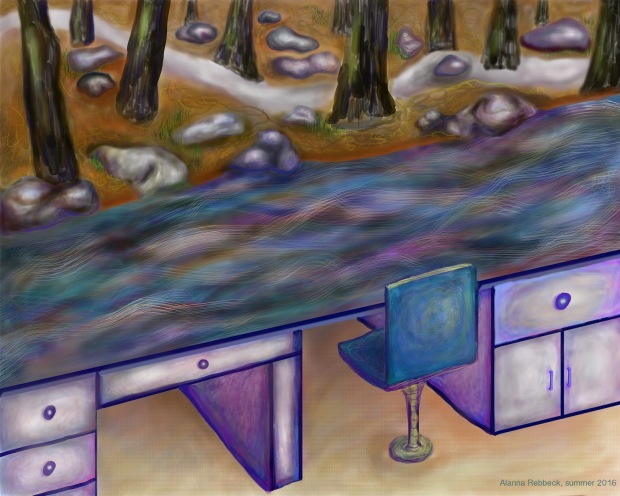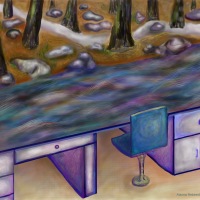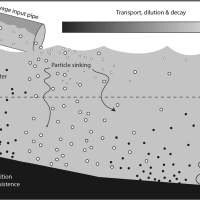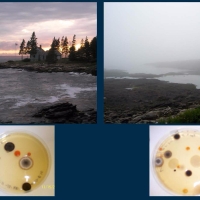Bard Water Lab

The Bard Water Lab, situated on Bard's Annandale campus, stands as a testament to innovative water management. This student-run facility, driven by the Environmental and Urban Studies Program, serves as a beacon of interdisciplinary collaboration. Its mission is to intertwine scientific exploration with social and political perspectives, thereby crafting effective solutions to intricate water-related environmental challenges. This article delves into the unique contributions of the Bard Water Lab and its role in shaping sustainable water management practices. The distinctiveness of Bard Water Lab arises from its holistic approach. It seamlessly integrates scientific research with social and political considerations, resulting in groundbreaking solutions to complex water-related environmental problems. By leveraging Bard's exceptional Environmental and Urban Studies Program, the lab explores a diverse array of aquatic science topics. Notably, the lab extends its purview to airsheds, broadening the traditional watershed-level management paradigm to encompass air quality's impact on aquatic systems. This convergence of disciplines transforms the lab into a focal point for innovative research, brimming with a community-centered ethos. Through the amalgamation of diverse minds and academic backgrounds, the lab fosters a culture of collaboration and ingenuity in the realm of aquatic science. In this transformative lab report, we delve into the world of the Bard Water Lab. Nestled within Bard's Annandale campus, this student-operated laboratory is dedicated to propelling water science within communities. The lab capitalizes on the interdisciplinary framework provided by Bard's renowned Environmental and Urban Studies Program. This integration of social, political, and scientific spheres allows for the development of robust solutions to intricate water-related environmental dilemmas. The exploration encompasses all facets of water—liquid, gaseous, and solid—enlarging our understanding beyond watersheds to include the crucial concept of airsheds, elucidating the interplay of interconnected water systems. The Bard Water Lab's hallmark lies in its multidisciplinary approach. By melding scientific analysis with social and political insights, the lab forges fresh pathways to resolve demanding environmental challenges associated with water. The lab's strategic utilization of Bard's distinctive Environmental and Urban Studies Program has paved the way for comprehensive exploration into diverse aquatic science topics. Notably, the lab extends its focus to airsheds, redefining conventional watershed-level management by considering air quality's influence on aquatic ecosystems. This integrative methodology metamorphoses the lab into a nexus of research and advancement, anchored by a community-centric ethos. Drawing upon a mosaic of backgrounds and academic disciplines, the lab cultivates an environment fostering collaboration and ingenious thought in the realm of aquatic science. A lab report showcasing the transformative power of Bard Water Lab emerges, offering a comprehensive vista into its operations. Nestled within Bard's Annandale campus, this student-driven facility galvanizes the integration of water science into local communities. The lab harnesses the synergistic capabilities of Bard's renowned Environmental and Urban Studies Program. Through this fusion of scientific inquiry with social and political considerations, the lab engineers effective resolutions to intricate water-focused environmental quandaries. The narrative unfurls across the spectrum of water's states—liquid, gaseous, and solid—stretching the boundaries of conventional watershed-level management to encompass airsheds' intricate dynamics. This paradigm shift underscores the interconnectedness of water systems and their surroundings. Embarking on the journey of crafting a compelling lab report about Bard Water Lab necessitates meticulous planning and a keen understanding of your target audience. To facilitate this process, we present a roadmap of essential steps for creating an engaging and impactful lab report chronicling the lab's transformative impact, and if you're interested in gaining deeper insights into water science, you might consider exploring resources to buy a lab report from reputable sources specializing in environmental studies and scientific research. Immersive Exploration: Begin by immersing yourself in the Bard Water Lab's mission and objectives. Familiarize yourself with its role and operations, serving as the foundation for a compelling narrative. Campus Integration: Introduce the Bard Water Lab's physical presence on Bard's Annandale campus. Detail its overarching mission of nurturing scientific understanding within communities, underpinned by Bard's distinguished Environmental and Urban Studies Program. Diving into Research: Transition into the lab's realm of research, where H2O's multifaceted nature takes center stage. Emphasize the lab's pioneering approach of expanding watershed-level management principles to encompass airsheds. This extension unlocks potent solutions to intricate environmental dilemmas. Community-Centered Approach: Delve into the lab's hallmark community-centered methodology. Explore its symbiotic relationship with local communities, as it co-creates culturally and socially pertinent solutions. Highlight the empowerment and sense of ownership this approach fosters, paving the way for inclusive decision-making. Personal Touch: Infuse your narrative with personal anecdotes and insights. Conduct interviews with lab-involved students and faculty, unearthing their experiences, learnings, and how the lab has catalyzed personal growth and community impact. Concluding Flourish: Culminate your narrative with a robust conclusion, encapsulating the Bard Water Lab's profound role in steering sustainable and equitable water management practices. Emphasize its contributions to a brighter and more responsible water-centric future. Empowering Sustainable Water Management: Bard Water Lab's Resounding Impact Water, the essence of life, demands astute management amid mounting challenges. The confluence of escalating demand, climate shifts, and human intervention has engendered complex environmental predicaments. The Bard Water Lab, a beacon of enlightenment, rises to meet these challenges head-on. Dr. Eli Dueker, visionary and Bard College's Environmental and Urban Studies luminary, founded the lab in 2010. Embedded within Bard's commitment to sustainability, the lab epitomizes environmental stewardship through scientific inquiry, community outreach, and education. A salient facet of the Bard Water Lab's identity lies in its community-engaged research. Collaborative partnerships with local communities unearth water-related concerns and collectively mold culturally pertinent solutions. This approach underscores that water quandaries transcend mere scientific riddles; they embody intricate sociopolitical dimensions necessitating community engagement. The seamless fusion of science and society births ownership, fortifying the foundation for enduring and effectual solutions. Research domains span water quality, quantity, aquatic ecology, hydrology, and climate change's aquatic impact. Pioneering methodologies, including DNA sequencing and stable isotope analysis, decipher biogeochemical intricacies impacting water quality and aquatic ecosystems. The lab ardently embraces citizen science, melding scientific exploration with community involvement, culminating in data that illuminates prudent management pathways. Moreover, the Bard Water Lab champions environmental education and outreach. Diverse programs cater to K-12 pupils, college scholars, and community stakeholders, spotlighting aquatic science, environmental stewardship, and community synergy. Public forums, encompassing film screenings, lectures, and workshops, foster dialogues amongst scientists, policymakers, and communities, kindling conversations about water-centric predicaments and plausible resolutions. The Bard Water Lab represents an epitome of holistic scientific praxis, intertwining community engagement, interdisciplinary research, and education. This synergy births context-driven, culturally pertinent resolutions. The lab's commitment echoes Bard's overarching mission—nurturing a sustainable future. In summation, the Bard Water Lab encapsulates the potential of science, harnessing it to surmount multifaceted environmental conundrums. It unveils a panorama where science interfaces with society, triggering empowerment and transformation. As we navigate uncharted waters, the Bard Water Lab illuminates our path, illustrating the profound union of knowledge and community to forge a sustainable and equitable tomorrow.Unveiling the Interdisciplinary Marvel of Bard Water Lab
Distinctive Features: Pioneering Innovation in Water Management
Crafting an Exemplary Lab Report: Navigating the Waters of Bard Water Lab
Key Steps for a Captivating Lab Report







